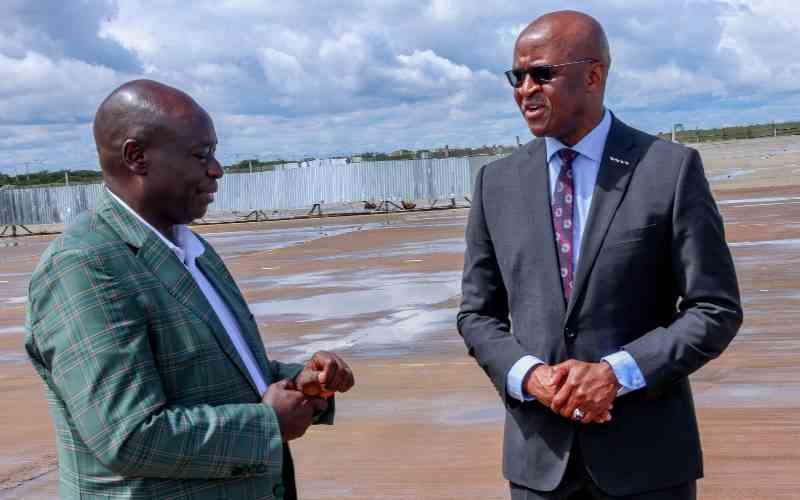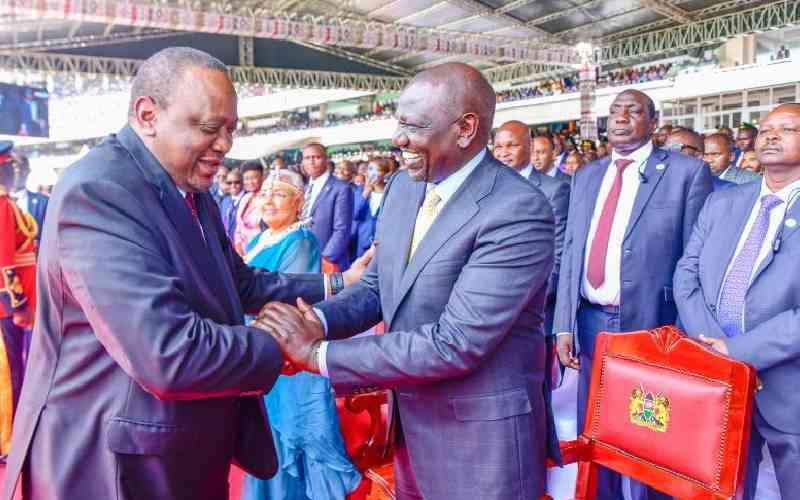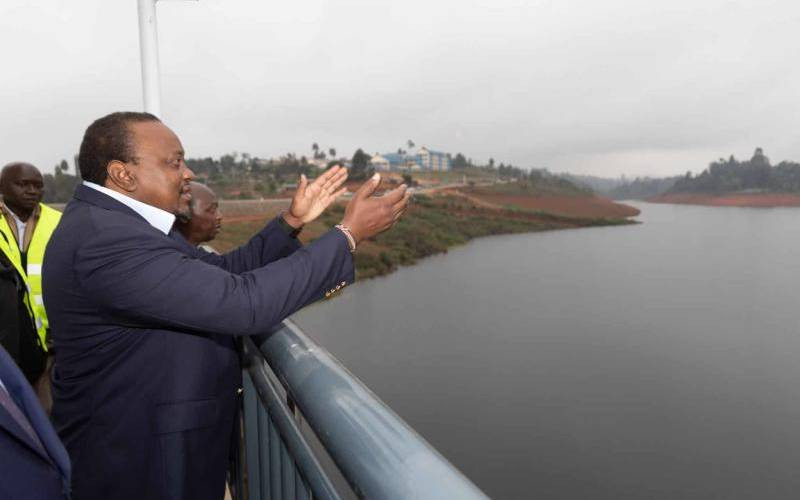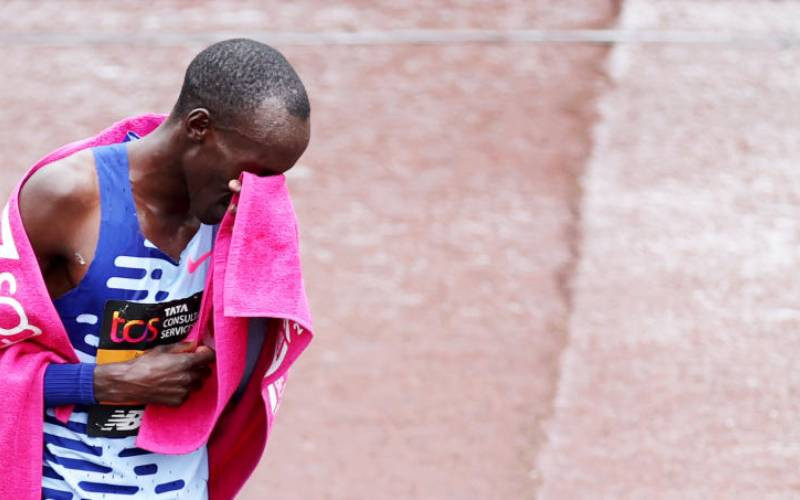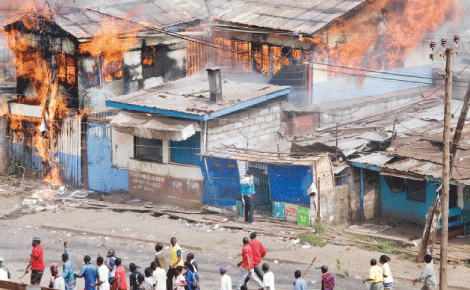 |
|
A scene at the height of 2008 post- election violence in Kenya. [PHOTO: FILE/STANDARD] |
By JUMA KWAYERA
Is President Uhuru Kenyatta willing to own up to the historical injustices perpetrated by his father’s administration and set in motion redistributive and restorative processes? The question became a hot topic this week as Rwanda began marking 100 days of the 20th anniversary since the 1994 genocide.
Rwanda President Paul Kagame’s efforts to heal the nation and reconcile three tribes; Hutu, Tutsi and Twa that brutally butchered one another two decades ago informs the political discourse in Kenya, which often shies away from its criminal past. Rwanda has become a reference for countries that have had a history of political violence and instability.
Despite serious misgivings about his own non-culpability and aversion to democracy, President Kagame has set the pace for countries in the region grappling with post-conflict tensions and instability.
For Kenya, the 1994 Rwanda genocide anniversary once again provides a new platform for President Kenyatta and his deputy William Ruto to work in healing a country riven by deep ethnic chasms on one hand and economic and political marginalisation on the other.
In his address at the Amahoro (Peace) Stadium, where Kenyatta was present, Kagame owned up to the nation’s mistakes that nearly relegated the country to the failed states’ league. It is the kind of approach Kenya’s Truth, Justice and Reconciliation Commission (TJRC) wanted the government to take to heal a nation ravaged by ethnicity and historical injustices.
Collective guilt
Former TJRC vice chair Tecla Namachanja says the current leadership should take a bold step and talk to Kenyans the same way Kagame spoke to Rwandans. Namachanja says Kagame’s crusade against corruption, negative ethnicity and women’s representation has won over his erstwhile critics and enemies. By contrast, in Kenya the vices and omissions are sometimes glorified.
“The common mwananchi acknowledges that from independence, there have been structural injustices perpetrated by successive regime because there was economic and political marginalisation. There is no way we shall continue sweeping them under the carpet in the hope that they will resolve themselves. But nobody shows interest in confronting this reality,” Namachanja, a lawyer, explains.
In what amounts to admission of collective guilt, Kagame told his countrymen: “We do so with humility as a nation that nearly destroyed itself. However, we are nevertheless determined to recover our dignity as a people. Twenty years is short or long depending on where you stand but there is no justification for false moral equivalence. In addition, no country is powerful enough, even when they think that they are, to change the facts. After all, facts are stubborn.”
The admission of collective guilt as a people is an ingredient that still misses in Kenya’s healing and reconciliation following the 2008 post-election violence that claimed more than 1,133 lives and uprooted an estimated one million from their homes.
When the embers of ethnic animosity began to ebb, Kenyans opted for retributive instead of restorative justice, which Namachanja says has widened the ethnic rifts further.
Unlike Rwanda which opted for homegrown justice through gacaca (traditional courts) where villains and victims faced each other, Kenya sought the intervention of the International Criminal Court, whose proceedings have pulled the country apart rather than forge national healing and reconciliation. Kagame has in the past come under fire for alleged gross violations of human rights, suppression of media freedom and subversion of democracy in addition to pillaging DRC’s resources to leverage his economy. Critics want him to personally admit his personal liability in the genocide.
Dodoma University political science lecturer Prof Amukowa Anangwe says Kagame must also openly talk about his alleged role in the massacre of Tutsi and Hutu on a scale only second to Germany’s Second World War holocaust in living memory.
“Truth heals and when Kagame admits collective guilt there is a basis for it,” points out Anangwe.
Stay informed. Subscribe to our newsletter
Kagame, however, is applauded for harnessing the collective guilt of Rwandans into nationhood and ethnic reconciliation.
In comparison, Anangwe points out that Kenya lives in self-denial and buries its head in the sand in the hope that historical injustices captured in the TJRC report will fade with time.
“Kenya hurts everywhere you go. There is collective anger in every region with complaints about past injustices. This anger should not go unattended; it must be accorded an opportunity,” he argues.
 The Standard Group Plc is a
multi-media organization with investments in media platforms spanning newspaper
print operations, television, radio broadcasting, digital and online services. The
Standard Group is recognized as a leading multi-media house in Kenya with a key
influence in matters of national and international interest.
The Standard Group Plc is a
multi-media organization with investments in media platforms spanning newspaper
print operations, television, radio broadcasting, digital and online services. The
Standard Group is recognized as a leading multi-media house in Kenya with a key
influence in matters of national and international interest.
 The Standard Group Plc is a
multi-media organization with investments in media platforms spanning newspaper
print operations, television, radio broadcasting, digital and online services. The
Standard Group is recognized as a leading multi-media house in Kenya with a key
influence in matters of national and international interest.
The Standard Group Plc is a
multi-media organization with investments in media platforms spanning newspaper
print operations, television, radio broadcasting, digital and online services. The
Standard Group is recognized as a leading multi-media house in Kenya with a key
influence in matters of national and international interest.


